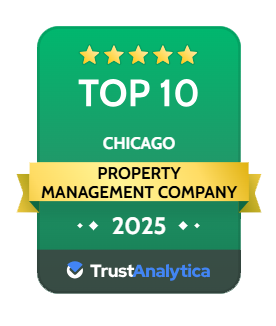In the realm of real estate management, property managers play a pivotal role in bridging the gap between property owners and tenants. Their responsibilities are wide-ranging and multifaceted, ensuring the smooth operation and upkeep of rental properties. In this blog post, we'll delve into the essential responsibilities of a property manager and highlight the crucial role they play in maintaining thriving rental properties.
1. Tenant Relations and Leasing
One of the primary responsibilities of a property manager is to interact with tenants and oversee the leasing process. This involves advertising available properties, conducting property tours, screening potential tenants, and drafting lease agreements. Effective communication with tenants sets the tone for a positive landlord-tenant relationship and contributes to tenant satisfaction throughout their stay.
2. Rent Collection and Financial Management
Property managers are entrusted with collecting rent from tenants on time and ensuring that the financial aspects of property management are well-handled. They are responsible for setting rent prices, adjusting them when necessary, and enforcing rent payment deadlines. Skillful financial management also includes creating budgets for property maintenance, utilities, and other expenses to ensure the property remains profitable for the owner.
3. Property Maintenance and Repairs
Property managers are responsible for maintaining the overall condition of the property. This includes promptly addressing maintenance requests, arranging repairs, and conducting routine inspections to identify any issues that may arise. Timely maintenance not only keeps tenants satisfied but also prevents small problems from escalating into larger, costly ones.
4. Vendor and Contractor Management
Property managers often coordinate with various contractors and vendors for repairs, maintenance, and upgrades. They must source reliable and cost-effective service providers, negotiate contracts, and ensure that work is completed to a satisfactory standard. Effective vendor management contributes to the overall value and appeal of the property as well as tenant satisfaction.
5. Property Marketing and Advertising
To attract potential tenants, property managers are responsible for marketing and advertising vacant properties. This involves utilizing various channels such as online listings, social media, and local advertising to showcase the property's features and amenities. A well-marketed property can lead to a shorter vacancy period and higher occupancy rates.
6. Legal and Regulatory Compliance
Navigating the legal and regulatory landscape of property management is a critical responsibility. Property managers must stay updated on local, state, and federal laws related to tenant-landlord relationships, fair housing practices, and property safety standards. Compliance with these regulations helps avoid legal complications and protects the interests of both property owners and tenants.
7. Emergency Response and Security
Property managers are the first point of contact during emergencies such as floods, fires, or security breaches. They must have protocols in place to respond swiftly and effectively to such situations, ensuring the safety of tenants and the protection of the property. Being prepared for emergencies demonstrates a commitment to tenant well-being.
8. Regular Communication with Property Owners
Property managers act as intermediaries between property owners and tenants. They keep property owners informed about the state of their investment, providing regular updates on occupancy rates, maintenance activities, financial performance, and any major decisions affecting the property. Open and transparent communication builds trust and fosters a collaborative partnership.
9. Handling Tenant Disputes and Conflict Resolution
Conflict can occasionally arise between tenants or between tenants and property owners. Property managers are responsible for mediating and resolving disputes in a fair and professional manner. Effective conflict resolution contributes to a harmonious living environment and prevents issues from escalating.
10. Keeping Up with Industry Trends
The real estate industry is constantly evolving, and property managers need to stay updated with the latest trends and innovations. This includes understanding changes in technology, rental market dynamics, sustainable practices, and tenant preferences. Adapting to these trends can enhance the property's appeal and competitiveness.
Conclusion
The role of a property manager is a multifaceted and dynamic one, encompassing a wide range of responsibilities that are crucial for the successful management of rental properties. From tenant relations and leasing to property maintenance, financial management, and legal compliance, property managers play an integral part in ensuring that properties are well-maintained, profitable, and attractive to tenants. Their dedication and expertise contribute to a harmonious living experience for tenants and a sound investment for property owners.
Get in touch with us today and learn more about our services.






.png)


